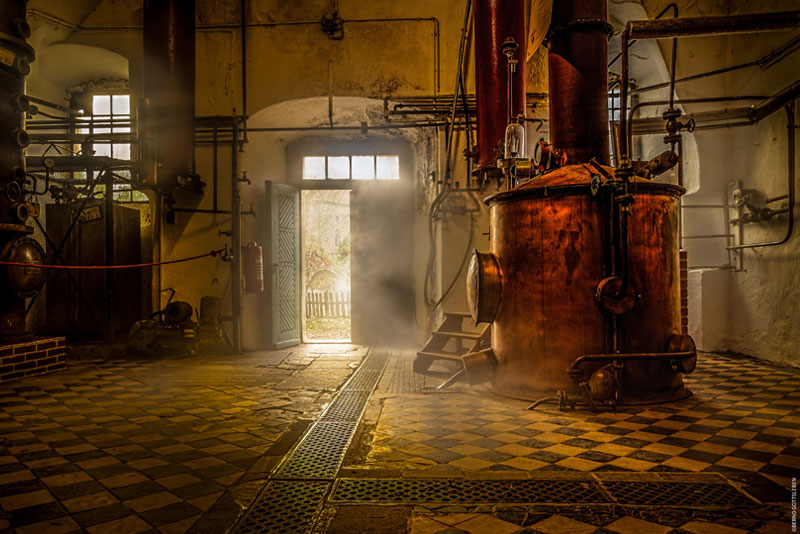Dany Mailah is the new master distiller at Wöltingerode Monastery. We talked to him about his career, the distillery craft and his favorites in the range of the monastery distillery.
Dany, how did you actually get into craft distilling?
„I was born in Wolfenbüttel, so the connection to Jägermeister is naturally obvious. I first completed a trial internship and then started my training there in 2010 at the age of 19. The chemical, biological and mathematical correlations were particularly appealing to me. In 2013, I was able to complete my training as the best apprentice nationwide. In 2015, I then switched to a citrus peel distillate manufacturer in order to be able to approach my further training as a master distiller and get to know a wider spectrum. After all, my training company was by and large all about one product. Since 2017, I have been a finished master distiller.“
What is actually the difference between a master distiller and a master distiller?
„Both professions are relatively often confused, since they are very related and basically produce alcoholic products. The distiller’s profession is mainly found in agriculture; he specializes in the production of agricultural alcohol – i.e. neutral alcohol with 95% vol. or more alcohol content from grain or potatoes. Occasionally, this alcohol is then reduced to drinking strength with water and used, for example, to produce vodka ready for sale. Training as a distiller deals more deeply and specifically with the matter of the actual production of spirits. He also occasionally makes neutral alcohol, but feels primarily at home in the refinement of alcohol into the actual spirits such as liqueur, grain, gin, whiskey or fruit schnapps. Partly by using the previously produced neutral alcohol as in liqueurs. But partly also by independently mashing, fermenting, distilling and bottling the distillates of sugar- and starch-containing raw materials such as fruit, sugar cane or grain. Quasi the all-round package „from the fruit to the glass.““
What excites you about your new place of work, the Wöltingerode Monastery Distillery?
„What attracted me to the work at Wöltingerode Monastery was the fact that I could contribute even more of my skills and a lot of creativity here. Of course, I was familiar with the distillery as a traditional factory in a historic building complex, which is unique in Germany. Here, things are not as automated and repetitive as in other companies, but you are much more directly involved in the artisanal work process. That’s great. In addition, the great product variety of the monastery distillery is of course something very special.“
Do you have a favorite in the existing range? Are there any new projects you’d like to tackle?
„My current favorite – certainly also due to my previous history – is the liqueur Frucht & Kräuter. But also our raspberry spirit, which has just been awarded the DLG gold prize, is a real discovery. Here you can simply taste that fresh berries are processed. For 2020, I’m already looking forward to many exciting projects – I can’t reveal too much yet, but the keyword fruit brandy can already be mentioned at this point.“
Where is your favorite place in the monastery?
„My favorite place in the monastery Wöltingerode is the barrel storage. Here there was a unique climate and a very special variety of aromas. This woody, alcoholic scent of different products is wonderful.“

